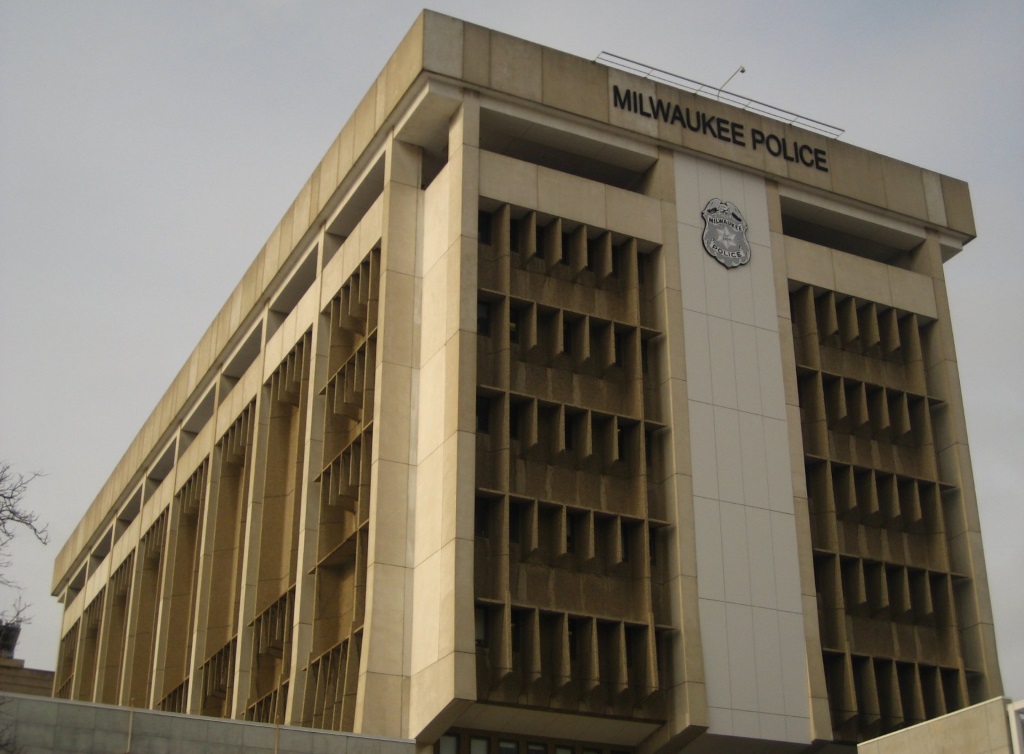Senate Bill Threatens FPC Independence
Police and fire fighter unions handed power over Fire & Police Commission disciplinary hearings.
If the Milwaukee Police Association (MPA) and the Milwaukee Professional Firefighters Association (IAFF) unions have their way and Senate Bill 117 is passed, their hand-picked representatives will soon be controlling the Fire and Police Commission.
In the wake of George Floyd’s murder and the calls for increased police accountability that followed, the sponsors of SB 117 have responded with a bill that guarantees two Commissioner positions on the FPC Board will go to the unions. A Commissioner representing the MPA’s interest will sit on the panel hearing disciplinary appeals for police, and a Commissioner representing the IAFF’s interest will sit on the panel hearing disciplinary appeals for firefighters. And just in case any decisions adverse to their members are handed down by the FPC, under SB 117 police and firefighters can appeal to the Circuit Court for a “DE NOVO Review of Disciplinary Decisions… without regard to any action taken or decision made by the board…”.
SB 117 attempts some improvements that have a superficial appeal. Mayor Tom Barrett has chosen not to appoint nine concurrently serving Commissioners to the Board since he was granted that authority in 2008 and he neglected to reappoint Commissioner Ann Wilson for over 2 ½ years since her first appointment expired in March of 2018. SB 117 would mandate that Barrett appoint nine Commissioners and give him 120 days after an expired term to do it.
That spoonful of medicine is not accompanied by sugar, rather we must take it with a poison pill. Under SB 117, the MPA and IAFF would each provide a list of five candidates for Commissioner from which the Mayor would pick one for confirmation by the Common Council. If the Mayor does not make the appointment within 120 days, representatives from the unions can approve their candidate of choice with no confirmation required by the Common Council. Not bad for unelected folks. Once confirmed, there is nothing to stop the union’s hand-picked Commissioners from becoming the Board Chair of the FPC or the Chair of one of its Committees e.g., Complaints and Discipline, Policies and Standards or Testing and Recruiting.
SB 117 mandates that the FPC Board meet behind closed doors with representatives of the MPA or IAFF when considering a new chief for their respective police or fire departments.
Make no mistake about it, if this passes the unions will be running the FPC in no time. Residency Preference Points will be one of their first targets and holding police and firefighters accountable will become more difficult. With approximately 90% of disciplinary appeals, both to the FPC’s panel and the Circuit Court, currently made by members of the MPA, the presence of one of their “brothers” on the Board will be a welcome sight.
Consider what former MPD Chief Alfonso Morales said during a July 24, 2020 report on PBS Wisconsin’s Here & Now:
Sometimes the unions get tied up representing somebody that the entire organization, both union members say, ‘that person should, you know, be pushed out of the department, they’re giving out law enforcement a bad image.’
Maybe that is why the Milwaukee Police Supervisors’ Organization union did not get a share of the legislative booty.
Milwaukee has had an Executive Director since 1987 and codified the position in the Milwaukee Code of Ordinance (MCO) Chapter 314-5 in 2007. Mayor Barrett has the authority now to appoint the Executive Director and it is often said the E.D. serves “at the pleasure of the mayor”. But according to Chapter 314-5 the Executive Director serves “under the direction of the board”. SB 117 attempts to resolve this conflict in reporting hierarchy but does not go far enough and leaves the final appointment of the Executive Director – from a list of three candidates provide by the FPC Board – to the Mayor.
A formal MOU between the Mayor, Common Council and FPC affirming that the Executive Director serves “under the direction of the Board” is all that is needed.
The sponsors of SB 117 may feel that doing something, anything, regarding the FPC is better than doing nothing – but handing the keys to the store to the MPA and IAFF unions is not a bargain we should make. Along with some modest improvements and half-way measures, there are poison pills that will significantly erode the independence and authority of the FPC Board while simultaneously reducing the Board’s ability to hold the members of the police and fire departments accountable.
If you care about preserving the authority and autonomy of the first citizen’s oversight board of its kind in the nation – our very own Fire and Police Commission – and you do not want to see a former president of the MPA sitting as the Board Chair, contact your State Senator, and Assembly Representative, and tell them – NO – we don’t want the MPA and IAFF unions controlling the FPC.
Correction: This column originally stated the proposal affected all municipalities in Wisconsin, which is incorrect. Only Milwaukee and Madison are targeted by the bill.
Paul Mozina, a retired IT professional and community activist.
Op-Ed
-
Unlocking Milwaukee’s Potential Through Smart Zoning Reform
 Jul 5th, 2024 by Ariam Kesete
Jul 5th, 2024 by Ariam Kesete
-
We Energies’ Natural Gas Plans Are A Mistake
 Jun 28th, 2024 by John Imes
Jun 28th, 2024 by John Imes
-
Milwaukee Needs New Kind of School Board
 Jun 26th, 2024 by Jordan Morales
Jun 26th, 2024 by Jordan Morales























There is an error above in my Op Ed: “Statewide impact is achieved via modest new requirements for training, performance reviews of police and fire chiefs, and the creation an Independent Monitor, aka Executive Director, in cities, towns and villages that do not already have such a position overseeing their public safety agencies.”
Upon further review, my analysis of SB 117’s impact “Statewide” is wrong. Madison is the only second class city affected by the Independent Monitor, Training and Performance Review requirements.
I apologize for the errors.
With that in mind SB 117 may be subject to a Home Rule challenge because it does not have statewide impact and it does not apply uniformly.
The Analysis by the Legislative Reference Bureau explains the bill only affects Milwaukee and Madison:
“This bill makes a number of changes that affect the board of fire and police commissioners of a first class city (presently only Milwaukee), the board of police and fire commissioners of a second class city with a population of 200,000 or more
(presently only Madison) (jointly referred to as affected PFC boards), and the protective services departments of first class cities and second class cities with a population of 200,000 or more (jointly, populous cities).”
SB 117 creates 62.13 (3m) INDEPENDENT MONITOR with this limitation.
(g) This subsection applies only to a 2nd class city with a population of 200,000 or more.
So only Madison is required to have an INDEPENDENT MONITOR.
SB 117 creates
62.13 (1m) (d) 1. The city shall provide a training class…
and it qualifies this training requirement to Madison.
4. This paragraph applies only in a 2nd class city with a population of 200,000 or more.
SB 117 created 62.13 (3) (d) 1. If the common council adopts a resolution by a two-thirds vote
of the members-elect, as defined in s. 59.001 (2m), to conduct a performance review
of the chief of police, the chief of the fire department, or the chief of a combined
protective services department, the board shall conduct the review and provide a
written report to the common council.
4. This paragraph applies only in a 2nd class city with a population of 200,000
or more.
So this change to conduct performance reviews only affects Madison.
Think MPD is unaccountable now? It’s about to get even worse.